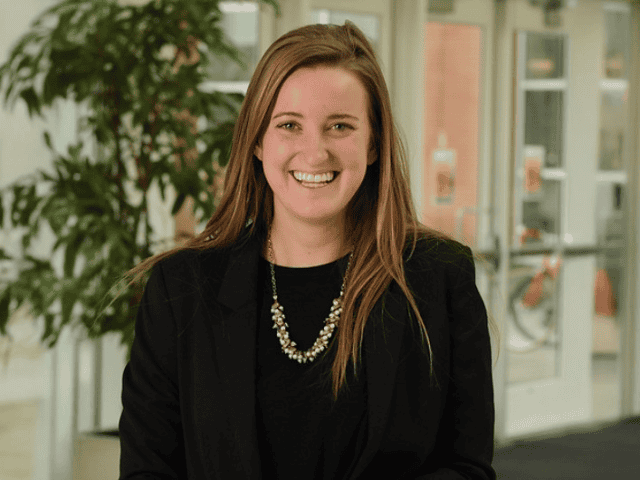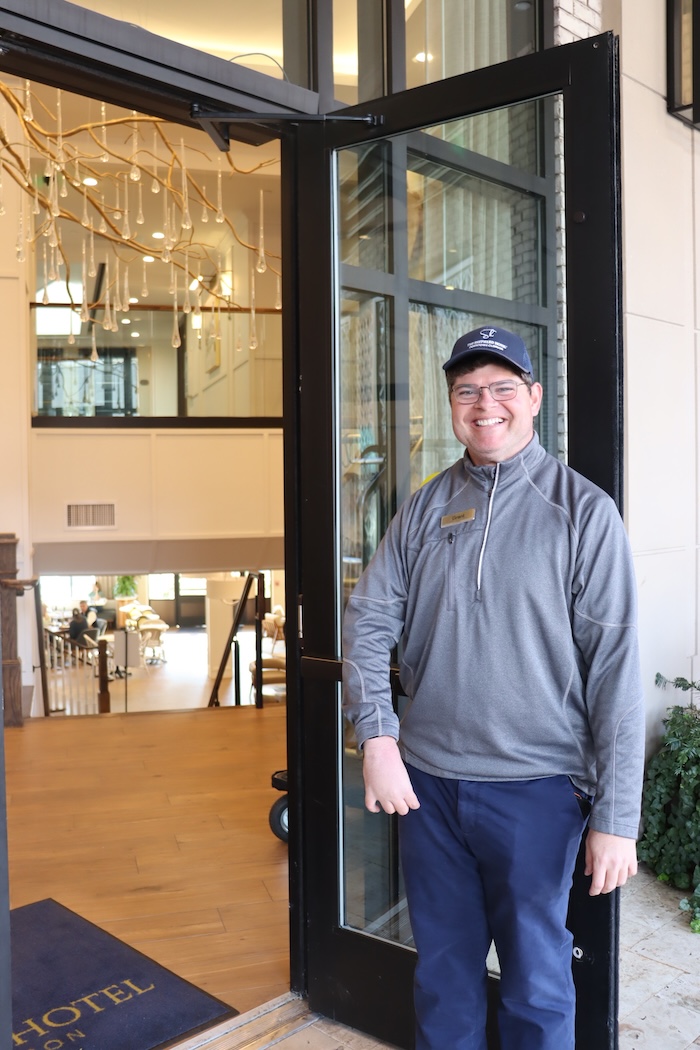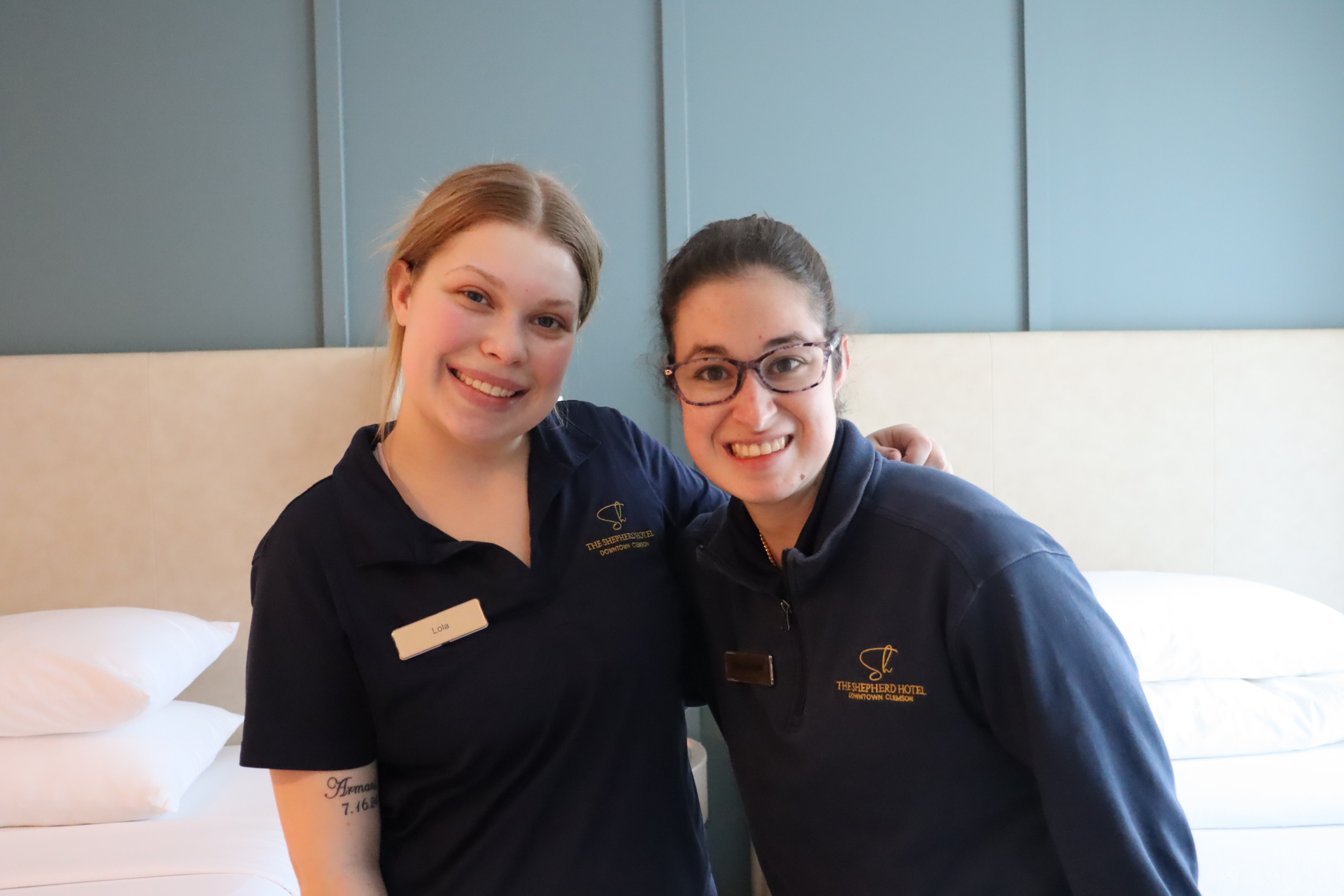Marnie Harris is Helping to Make Competitive Integrated Employment More Accessible for the I/DD Community
Competitive integrated employment (CIE), defined in the Workforce Innovation and Opportunity Act, is a term often used when talking about equal employment opportunities for people with intellectual and developmental disabilities (I/DD). But what does CIE actually look like?
CIE means jobs where people with and without disabilities work together, earn fair wages, and have equal opportunities to advance. CIE recognizes that people with disabilities bring value to the workforce.
IPSE Programs: A Building Block for CIE
What systems are built to support CIE in Georgia? Inclusive Post-secondary Education (IPSE) programs are one way. These programs, which are housed in select Georgia universities and colleges, equip students with intellectual disabilities (ID) with the skills for independent living and employment, while also offering IPSE students the full college experience alongside their peers and students who do not have disabilities. There are currently ten IPSE programs in Georgia, including the University of Georgia’s (UGA) Destination Dawgs, Georgia State University’s Inclusive Digital Expression and Literacy (IDEAL) program, and the Georgia Institute of Technology’s (Georgia Tech) Expanding Career, Education, and Leadership Opportunities (EXCEL) program.
 Marnie Harris is using her education and passion to create a more inclusive and accessible world. Harris, who is the Director of Business and Marketing Strategy at Pavilion Development Company, helped to develop the EXCEL program at Georgia Tech while she was studying to be a biomedical engineer. Through her current position, she is helping to create employment opportunities in hospitality for people with I/DD.
Marnie Harris is using her education and passion to create a more inclusive and accessible world. Harris, who is the Director of Business and Marketing Strategy at Pavilion Development Company, helped to develop the EXCEL program at Georgia Tech while she was studying to be a biomedical engineer. Through her current position, she is helping to create employment opportunities in hospitality for people with I/DD.
“When developing EXCEL, we weren’t just trying to postpone a cliff,” said Harris, referring to the school-to-couch pipeline. “The curriculum needed to center around meaningful employment outcomes, just like any other college degree.”
But IPSE alone isn’t enough; the workforce still presents barriers for people with I/DD. Even with an IPSE certificate, career opportunities can be challenging to find for people with I/DD. That’s why Harris shifted to focus on the other half of the answer: the business community.
“There are lots of nonprofits that fill needs,” Harris said, “But the business community is an opportunity. You can still be outcome-driven without treating people like charity.”
Bridging Education to Employment Opportunities

Shepherd Manager in Development Ansley Minor sees the impact daily. “Guests return again and again because of the connections they make here,” she said. “People walk away changed.”
“Hospitality is an easy sell,” Harris added. “People want to feel something. When a guest feels impacted when they leave, they go back and tell their friends. That’s how you retain customers.”
The Shepherd hires, trains, promotes, and holds their employees with I/DD to the same high standards as everyone else.
Helping People with I/DD to Fulfill their Dreams
Ross Hicks, a Shepherd Employee from Alpharetta, GA, said, “We can do anything that anyone else can do. It just might take us a little longer, so patience is important.”
Hicks continued, “People with DD make workplaces better. We will learn from working there, and people will learn from us.” Hicks is also a student at ClemsonLIFE.

In the fall, Hicks will start ClemsonLIFE’s two-year Hospitality Certificate Program to further prepare him for a career in the hotel industry.
“It’s always been my dream to work in a hotel, and this program will help me fulfill my dreams,” said Hicks. “Hopefully I can be a hotel manager one day.”
This example of education-to-employment practiced at ClemsonLIFE demonstrates that CIE is possible.
“I feel successful at The Shepherd Hotel, and I am treated as an equal. I feel like I belong,” said Hicks.
IPSE programs help students build practical skills. “They’re important for credentials,” Harris explained. “And yet so many jobs are found through networking and relationships.”
Until those networks include people with I/DD, equity in the workplace will not happen.
“We’re now seeing a lot of IPSE programs flip to different internships every semester, to expand the people that students meet,” said Harris.
Expanding Opportunities and the Future of CIE
What is Harris’ plan moving forward? She would like to have a Shepherd Hotel on every IPSE campus in Georgia. Additionally, she explained that IPSE and hospitality are the perfect match. She feels IPSE students will be able to graduate with hands-on experience, professional connections, and a clear path to employment.

Harris’ vision for the future is a business world that finds creative ways to harness the value of people with I/DD. When that happens, everyone wins – individuals, businesses, and the broader economy.
For more information about competitive integrated employment in Georgia visit Georgia Vocational Rehabilitation Agency - Supported Employment.
For more information about Georgia IPSE programs visit GAIPSEC.